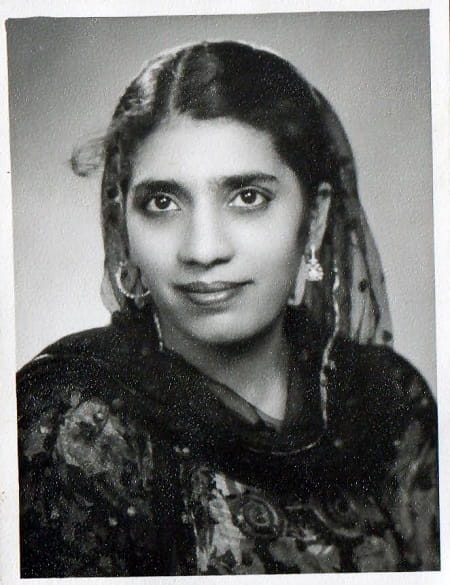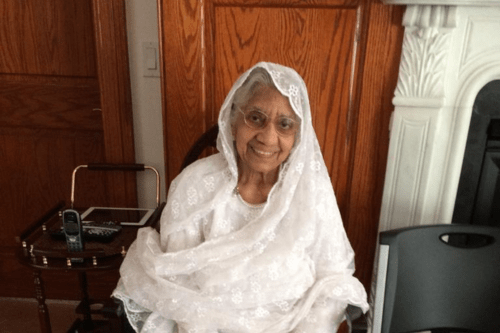Ismat Malik grew up in Lahore, Pakistan. She had a passion for education and a strong desire to continue her studies, fueling her fire to become the first in her family to obtain a college degree from Islamia College for Women. Inspired by her dream, Ismat’s father supported her studies; before he died, he asked his sons to continue doing the same, encouraging their sister to follow her dreams.
Somewhere along the path of doing just that, Ismat heard about a Montessori training course in Srinagar, capital of Kashmir, from a friend and neighbor who planned on attending. Ismat decided to accompany her friend and embarked on a journey that would shape the course of her life.
Ismat, now nearly 100 years old, is mostly comfortable speaking Urdu and Punjabi. As a result of language barriers, Ismat’s family worked together to translate the questions and answers below of Ismat’s recollections of Maria Montessori and the time she spent learning from her.
How did you first hear about Montessori education?
Ismat: A neighbor and a friend who was my age was going to the training so I decided to go with her. I had finished my Bachelor’s degree in teaching at this stage and was not otherwise familiar with, or had heard, of Montessori Education.
Where did you meet Dr. Maria Montessori?
Ismat: I met Dr. Montessori in Srinagar, the capital of Kashmir, in India.
What was your initial reaction to meeting Dr. Montessori?
Ismat: I liked Dr. Montessori very much. She was very nice and engaging.
What course were you taking?

The opinions expressed in Montessori Life are those of the authors and do not necessarily represent the position of AMS.


